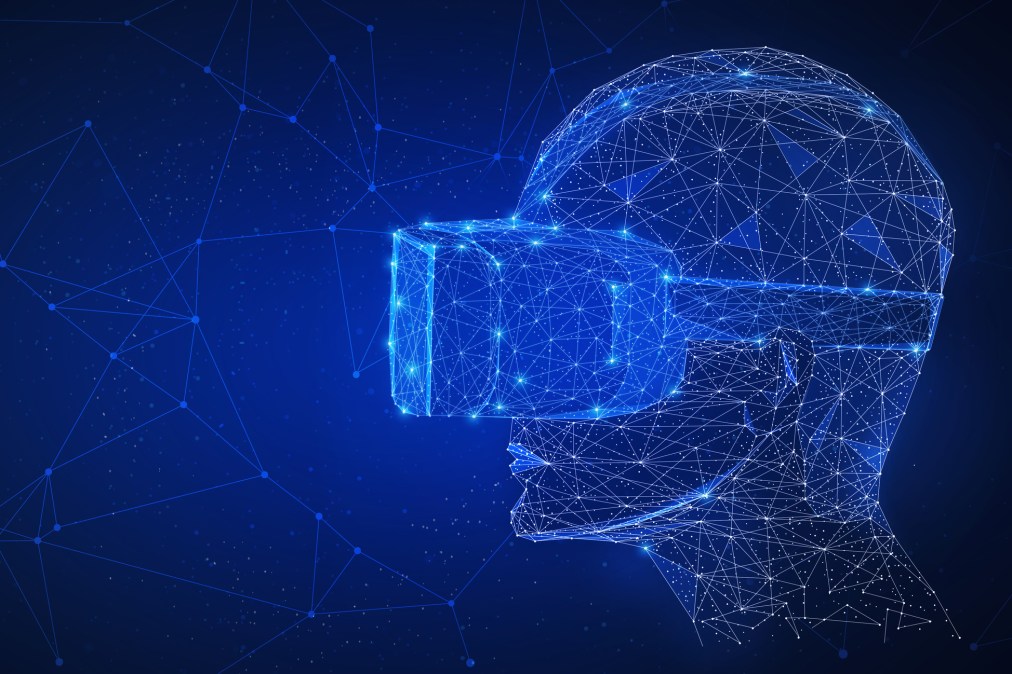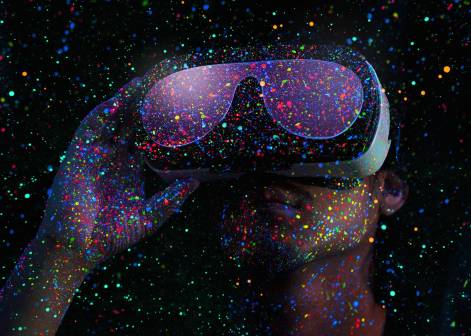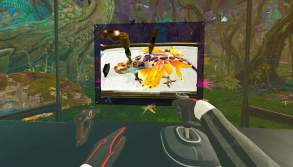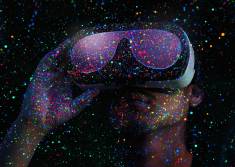Augmented, virtual reality major opens at Shenandoah U. next fall

Shenandoah University will become the first college in Virginia to offer a degree in augmented and virtual reality, with an emphasis on the “human experience” behind the technology. The school says it also hopes to train a generation of students for a diverse set of careers centered around the emerging technologies.
SU’s primarily student-run program will become available in the fall 2019 semester, according to an announcement from the university made in October. The VR program will contain three majors related to three different areas of concentration — theater, filmmaking and computer science — to accommodate the various career opportunities in VR.
Though the major is a new addition to the university, current SU students already take classes in all three VR concentrations and work on more than 80 VR projects within different industries. As a student-run program, the school’s faculty have a limited role in running its courses, instead allowing students to tap a “brain trust” of industry experts who can guide projects and point students toward real-world applications.
Where other university VR programs tend to focus on coding and software creation, students at Shenandoah are taking a more humanistic approach.
“We are a human design program,” J.J. Ruscella, executive director of the university’s Center for Immersive Learning, or SCIL, told EdScoop. “We are designing the human experience in the applications.”
Ruscella said that VR is a unique platform because it can bring together a diverse array of disciplines who can apply their respective talents to a common challenge. The idea, he said, it to bring together these components of VR to create a meaningful experience for the end user.
“We have three different programs that create three different kinds of people,” Ruscella said. “The theater person really ends up looking at the human experience design of [VR] and the narrative structure. The filmmakers end up doing a lot of video-360, a lot of the media recording of the experiences, [and] the programmers build the contextual assets in the virtual world or augmented world.”
But it was industry demand for VR and AR drove the creation of the new degree program, Ruscella said. VR technology has been used in a diverse range of industries as new applications are developed for the tools. Government, corporate businesses, healthcare industries and others are turning to augmented and virtual reality for new ways to teach, learn, and solve problems.
In one project, special needs students were placed into a virtual reality environment that allowed them to practice interviewing skills, Ruscella said. He said that one student participant, who was unable to communicate socially, put on the VR headset and entered a virtual conference room where he held a full conversation. “It was humbling and awesome to watch what that little bit of a mask does for them,” he said.
Finding a stage
With a predominant focus on designing the user experience within the VR hardware, SU has looked outside of its own community for software support.
Immersive VR Education, a VR edtech startup based in Ireland, has partnered with the college through access to its Engage platform, which allows non-coders to create custom VR content. The platform offers a “stage” for users to drop content into, according to the the company, making virtual reality design accessible to more people.
“If you go to the movies, you only remember the movies that make you laugh, make you cry because you’ve had an emotional response to that movie. We want to bring the same to education,” said David Whelan, founder and CEO of Immersive VR Education.
According to Ruscella, SU’s AR/VR program does not limit students to just learning about how VR or AR work, but instead allows students to learn how the technology can be applied to other subjects and fields of industry.
“It’s not about how virtual reality functions. It’s about, ‘How does history function in virtual reality? How does biology function in virtual reality? How does psychology function with these new tools?'” he said.
The school hopes to prepare student for careers in a field with a market size projected to grow to $209.2 billion by 2022, according to Statista. Still at its advent, Whelan compared VR technology to the introduction of the personal computer.
“The stage where we are today, it’s very similar to the mid-80s when the personal computer finally became affordable,” Whelan said.
Ruscella said he hopes that as people hear about SU’s program, they will reach out and invite students to help fulfill real industry needs using VR. “Our students are here to help,” he said.
In addition, Ruscella said he hopes to collaborate with other universities in the future. “I want other universities to come partner with our program,” he said. “There is such a green, open field here, [and] there is a huge need and opportunity for collaboration.”




